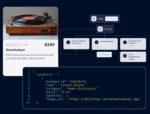Oracle OpenWorld was a study in contradictions. On Sunday night, Oracle CEO Larry Ellison publicly bad-mouthed Salesforce.com, claiming that the SaaS CRM provider was “not cloud.” On Wednesday morning, Salesforce’s CEO Marc Benioff spoke, and he took issue with Ellison’s disparagement.
Elsewhere, Intel discussed its work with Oracle to optimize Java platforms, while Oracle touted its newly acquired SPARC line of processors as the fastest in the world.
With these Janus-like contradictions, Oracle took its first steps into the cloud market by unveiling what Ellison referred to as “cloud in a box.” The company’s new Exadata servers offer provisioning and data management capabilities that compare it to cloud environments from VMware and other data center operating systems companies.
Oracle also announced some plans for Solaris 11, which will arrive in 2011, bringing with it an updated packaging system, performance enhancements, and the new Fast Reboot technology that allows crashed systems to recover in seconds.
As for Oracle’s other operating system, Oracle Enterprise Linux, the company has broken with its past of rebranding Red Hat Linux. Oracle Trusted Linux will now use more-recent kernels than Red Hat Enterprise Linux, starting with the current release based on the Red Hat 2.6.32 kernel.
JavaOne rollouts
JavaOne occurred simultaneously with Oracle OpenWorld this year.
At JavaOne, JRapid 1.0 was on display in the expo hall. JRapid is a rapid development platform for developers who want to work in Java, but don’t want to write any code. It consists of an extremely advanced Web-based IDE that can generate Java code based on the needs of a developer. This includes automatic generation of database connections, table insertions and UI design.
Quest was on hand to demonstrate its new Eclipse plug-in for its Toad family of products. The new Eclipse plug-in allows Quest developers to quickly create database-backed applications with point-and-click simplicity. Toad Extension for Eclipse is available now for free.
Newcomer development tools company Particle Code demonstrated its development system designed to simplify the creation of cross-mobile platform applications. Applications written in Java or Objective-C can be automatically translated back and forth. That means developers can write an application for the iPhone, and Particle Code can automatically translate the code to work on Android. Particle Code will enter general availability later this year, and the public beta of the platform was announced at the show.
Finally, Java fans will be happy to know that Duke, the Java mascot, lives on. The only change since he joined Oracle is that he now no longer poses for photos with attendees on the show floor.






